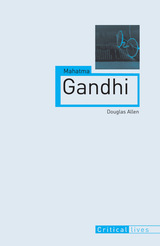2 books by Allen, Douglas

The Institutional Revolution
Measurement and the Economic Emergence of the Modern World
Douglas W. Allen
University of Chicago Press, 2011
Few events in the history of humanity rival the Industrial Revolution. Following its onset in eighteenth-century Britain, sweeping changes in agriculture, manufacturing, transportation, and technology began to gain unstoppable momentum throughout Europe, North America, and eventually much of the world—with profound effects on socioeconomic and cultural conditions.
In The Institutional Revolution, Douglas W. Allen offers a thought-provoking account of another, quieter revolution that took place at the end of the eighteenth century and allowed for the full exploitation of the many new technological innovations. Fundamental to this shift were dramatic changes in institutions, or the rules that govern society, which reflected significant improvements in the ability to measure performance—whether of government officials, laborers, or naval officers—thereby reducing the role of nature and the hazards of variance in daily affairs. Along the way, Allen provides readers with a fascinating explanation of the critical roles played by seemingly bizarre institutions, from dueling to the purchase of one’s rank in the British Army.
Engagingly written, The Institutional Revolution traces the dramatic shift from premodern institutions based on patronage, purchase, and personal ties toward modern institutions based on standardization, merit, and wage labor—a shift which was crucial to the explosive economic growth of the Industrial Revolution.
[more]

Mahatma Gandhi
Douglas Allen
Reaktion Books, 2011
The idea of nonviolent resistance is still as essential and almost as radical today as it was when Mahatma Gandhi (1869–1948) first pioneered in India the protest of political tyranny—in his case against British colonialism—through massive displays of civil disobedience. Gandhi’s ideas of peaceful protest went on to inspire the marches and sit-ins of the American Civil Rights movement and continue to be the foundations for political and social demonstrations around the world.
This biography by leading scholar Douglas Allen presents a new and challenging approach to understanding Gandhi’s life—the time in which he lived, how he shaped history, and how his philosophy and practices can be reformulated in ways that are significant and effective today. Allen analyzes his continuing relevance by addressing key issues of truth and ethics, violence and nonviolence, equality and freedom, as well as ideas of exploitation, oppression, religious conflict, and environmental crises.
Allen provides a much needed new perspective on Gandhi that allows us to rethink our basic values and priorities. By helping us understand Gandhi’s life and message, he creates a new paradigm for evaluating truth, nonviolence, peace, and morality; and he offers new criteria for assessing our modern approach to standards of living, development, progress, and meaningful human existence.
[more]
READERS
Browse our collection.
PUBLISHERS
See BiblioVault's publisher services.
STUDENT SERVICES
Files for college accessibility offices.
UChicago Accessibility Resources
home | accessibility | search | about | contact us
BiblioVault ® 2001 - 2024
The University of Chicago Press









